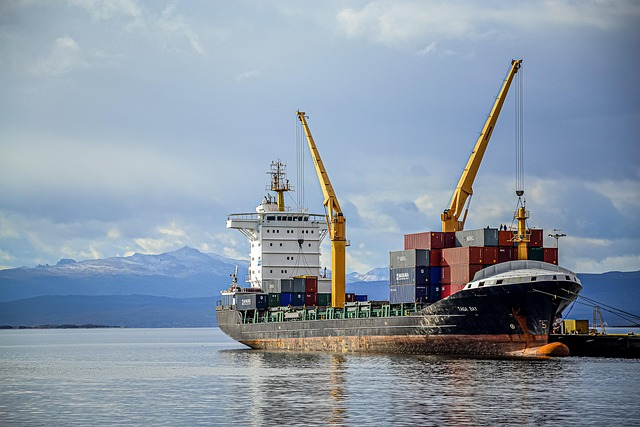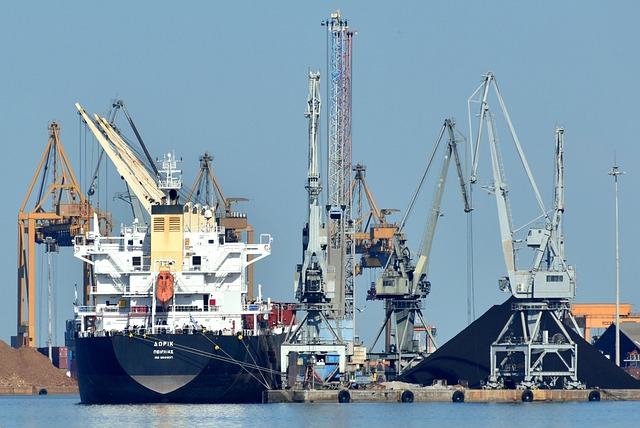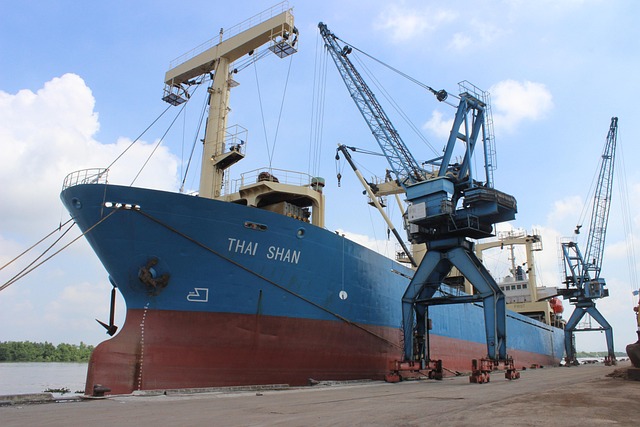The introduction of shipping containers in the late 1950s transformed global trade with their standardized, versatile, and robust design. Startups can leverage leasing or rental services for cost-effective logistics solutions without ownership burdens. These containers offer various sizes, configurations (e.g., ISO, refrigerated), and uses (storage, transport, offices) while optimizing space utilization. Intermodal, refrigerated, flat rack, and high cube options cater to diverse needs, with leasing providing flexibility as businesses grow.
In today’s dynamic startup landscape, efficient logistics operations are key to success. One game-changing solution gaining traction is the adoption of affordable shipping containers, offering a cost-effective and versatile approach to inventory storage and distribution. This article explores the rise of shipping containers as a preferred logistics method for startups, highlighting their numerous benefits, from cost savings to streamlined operations. We’ll guide you through choosing the right container and implementing this innovative solution into your startup’s day-to-day activities.
- The Rise of Shipping Containers for Logistics
- Benefits of Using Affordable Containers for Startups
- Choosing the Right Container for Your Business Needs
- Implementing Container Solutions into Your Startup Operations
The Rise of Shipping Containers for Logistics

The rise of shipping containers has revolutionized logistics operations worldwide. These versatile, standardized, and robust intermodal containers have transformed the way goods are transported, offering a cost-effective and efficient solution for businesses, especially startups. The concept of containerization began in the late 1950s when Malcom McLean introduced the first modular, stackable, and easily transportable freight container, marking a significant shift from traditional break bulk shipping.
Over the years, various types of shipping containers have emerged to cater to different needs, including sea containers, ISO containers, storage containers, refrigerated containers, flat rack containers, open top containers, high cube containers, and more. Container shipping has become a cornerstone of global trade due to its speed, security, and flexibility. Startups can leverage container leasing and rental services to gain immediate access to these assets without the overhead of purchasing, making it an attractive option for businesses looking to optimize their logistics operations cost-effectively.
Benefits of Using Affordable Containers for Startups

Using affordable shipping containers offers startups a range of benefits that can significantly enhance their logistics operations. Firstly, they provide a cost-effective solution for storage and transportation needs. Shipping containers are designed to withstand harsh conditions, ensuring goods remain secure during transit, which is crucial for protecting inventory value. Moreover, these containers offer flexibility in terms of size and purpose; startups can choose from various options like standard ISO containers, refrigerated containers for perishable items, or even office containers that double as temporary workspaces.
Another advantage lies in the efficient utilization of space they allow. Startups often face challenges with limited storage areas; modular containers provide an easy solution by expanding or reconfiguring existing spaces. They are also ideal for container leasing or rental arrangements, offering a scalable and adaptable approach to logistics management. This flexibility enables startups to manage cash flow effectively while ensuring their operations remain streamlined and responsive to market demands.
Choosing the Right Container for Your Business Needs

When selecting a shipping container for your startup logistics operations, understanding your specific business needs is paramount. Consider factors such as the types of goods you’ll be transporting—dry goods, perishables, or hazardous materials—as this dictates the container’s construction and ventilation requirements. Additionally, assess the quantity and weight of your cargo to ensure the chosen container has sufficient capacity and strength.
Size matters too. Standard ISO containers come in various dimensions, with popular choices like 20-foot and 40-foot units offering balance between storage space and transport efficiency. For unique items or those requiring specialized handling, modular containers, refrigerated containers, flat rack containers, or open top containers might be more suitable. Leasing or renting these versatile shipping containers can also be a cost-effective solution for startups, providing flexibility as your business grows and shifts its logistics requirements.
Implementing Container Solutions into Your Startup Operations

Implementing shipping container solutions into your startup’s logistics operations can be a game-changer. These versatile and affordable freight containers offer a wide range of benefits, from efficient storage to seamless container transport. Whether you’re looking for a temporary solution or a permanent addition to your warehouse, there’s a shipping container to fit your needs.
Consider the various types available, such as intermodal containers, refrigerated containers, flat rack containers, and high cube containers, each designed for specific purposes. Container leasing and rental options provide flexibility, while container depots offer easy access for pickup and drop-off. With their modular design, these storage containers can be easily adapted to serve as offices or workshop spaces, making them a cost-effective choice for startups looking to streamline their operations and maximize space utilization.
Shipping containers offer startups an efficient, cost-effective solution for their logistics operations. By providing flexible and affordable options, these containers empower businesses to streamline their supply chain management. With the right choice of container and a strategic implementation plan, startups can navigate the market with ease and focus on growth. Embracing this innovative approach to logistics is a game-changer, ensuring your business stays agile and competitive in today’s dynamic marketplace.
